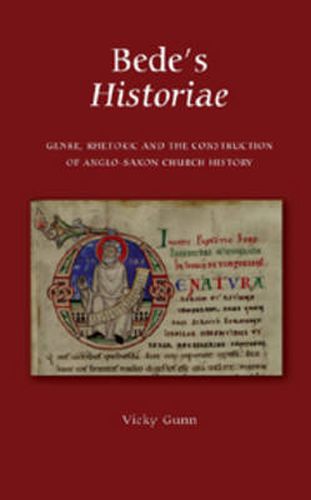Readings Newsletter
Become a Readings Member to make your shopping experience even easier.
Sign in or sign up for free!
You’re not far away from qualifying for FREE standard shipping within Australia
You’ve qualified for FREE standard shipping within Australia
The cart is loading…






The church history of the Anglo-Saxons can only be approached through the lens of a few writers, arguably the greatest of whom is Bede; his works illuminate an otherwise impoverished landscape of ecclesial development from conversion to established Christian church amongst the Anglo-Saxons. Bede, however, had his own agendas - monastic, political, and rhetorical. In her reappraisal of Bede’s Ecclesiastical History, Lives of the Saints, History of the Abbots, the Lesser and Greater Chronicles and the Martyrology and the audience for these texts, the author draws out the role played by classical forms of genre and rhetoric in the crafting of his work.Shealso explores the underlying political influences that caused Bede to write historia as he did. In particular, she notes the role of historia in monastic affairs, especially through the generation of a rhetoric of orthodoxy and the power of the cultural capital afforded by this within the relatively newly constituted Christian community in Northumbria.
Dr VICKY GUNN is Senior Lecturer, Learning and Teaching Centre, University of Glasgow.
$9.00 standard shipping within Australia
FREE standard shipping within Australia for orders over $100.00
Express & International shipping calculated at checkout
The church history of the Anglo-Saxons can only be approached through the lens of a few writers, arguably the greatest of whom is Bede; his works illuminate an otherwise impoverished landscape of ecclesial development from conversion to established Christian church amongst the Anglo-Saxons. Bede, however, had his own agendas - monastic, political, and rhetorical. In her reappraisal of Bede’s Ecclesiastical History, Lives of the Saints, History of the Abbots, the Lesser and Greater Chronicles and the Martyrology and the audience for these texts, the author draws out the role played by classical forms of genre and rhetoric in the crafting of his work.Shealso explores the underlying political influences that caused Bede to write historia as he did. In particular, she notes the role of historia in monastic affairs, especially through the generation of a rhetoric of orthodoxy and the power of the cultural capital afforded by this within the relatively newly constituted Christian community in Northumbria.
Dr VICKY GUNN is Senior Lecturer, Learning and Teaching Centre, University of Glasgow.